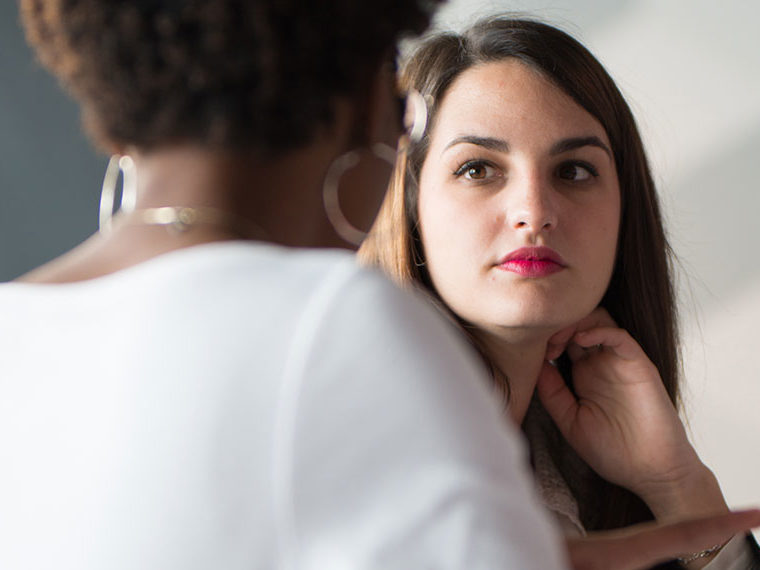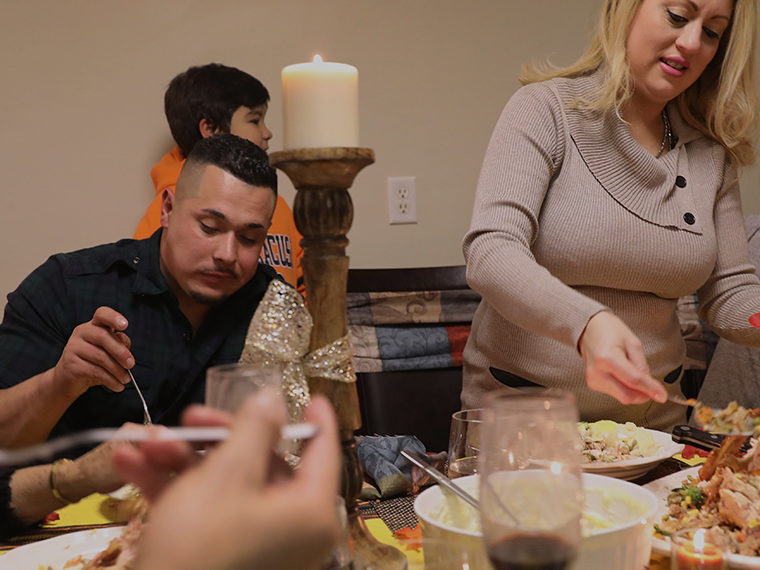A listening-and-learning approach is more welcome than professing color-blindness
Whites motivated to telegraph that they are not prejudiced may be going about it all wrong, according to research published in Social Psychological and Personality Science.
Some background: In a survey of more than 6,000 Americans polled earlier this year by the Pew Research Center, two-thirds of whites said they have never experienced racial or ethnic discrimination. More than three in four blacks say they have. Among whites, 6% say all or most white people in the U.S. are prejudiced against black people. When blacks were asked the same question, one in five reported that they believe all or most whites are prejudiced.
Whites are not blind to this perception. Nearly half (45%) of whites surveyed say that people assume they are racist or prejudiced, compared to 25% of blacks.
Opt In to the Review Monthly Email Update.
Siena College’s Stefanie Simon, Tulane University’s Emily Shaffer, the University of Iowa’s Rebecca Neel and UCLA Anderson’s Jenessa Shapiro found that when whites take a performative approach to a racially tense interaction — being overly solicitous, professing color-blindness — it is likelier read by blacks as a signal that a white person is, in fact, prejudiced: the “thou doth protest too much” rule applied to racial interactions. When blacks were presented with situations where whites’ approach to a tense interaction was to listen and learn, the perception of whites’ level of prejudice was lower.
The new research builds on work Neel and Shapiro published in 2012 in the Journal of Personality and Social Psychology. They found that whites who believe prejudice is not a fixed trait, but one that can evolve, are more prone to bring a learning-oriented approach to a tense interaction, such as adopting the other person’s perspective and wanting to learn why an interaction is perceived a certain way.
People who believe prejudice is a fixed attribute are more inclined to try to get out of an uncomfortable situation through active overcompensation; they escape rather than problem-solve. Overly solicitous warmth and friendliness and refusing to acknowledge race even when it is central to a conversation or interaction (strategic color-blindness) are employed as active strategies to extricate oneself from a tense interaction.
The new research finds that, ironically, whites using the escape strategies are likelier to be judged by blacks as being racist.
In an experiment, 49 black undergraduates were asked to recall an interaction with a white person that went off the rails, and to give a detailed description of what went wrong. After that table-setting, the participants were asked to rate 12 behaviors that whites might use in a racially charged interaction. The scenarios mixed performance-based approaches (“whites act extremely nice — nicer than they normally would”) and learning-based (“whites ask me what I am thinking”).
On a scale of 1 (not at all racist) to 6 (very racist) the performance-related behaviors were perceived to be more racist: 3.09 versus 1.99.
Participants were also asked to weigh where a white person with prejudice fell on the spectrum of being unable to change (a score of 1) to very able (a score of 6). When the white person’s behavior was performance-related, the average score was 3.33, compared to 4.7 for learning-oriented behaviors.
“A Black person may see Whites’ performance-oriented behaviors as indicating racial prejudice, regardless of a person’s actual racial prejudice,” the researchers write. Their opinion is that a potential corrective is not to focus on encouraging blacks to change their perception, but to focus on educating whites about how their behavior is being read.
“If Whites have insight into the fact that performance-oriented behaviors seem to indicate racial prejudice, they may be motivated to engage in more learning-oriented behaviors, even if they are concerned with appearing prejudiced.”
Featured Faculty
-
Jenessa Shapiro
Professor of Management and Organizations
About the Research
Simon, S., Shaffer, E., Neel, R., & Shapiro, J. (2019). Exploring Blacks’ perceptions of Whites’ racial prejudice as a function of intergroup behavior and motivational mindsets. Social Psychological and Personality Science, 10(5), 575–585. doi: 10.1177/1948550618778584
Neel, R., & Shapiro, J. (2012). Is racial bias malleable? Whites’ lay theories of racial bias predict divergent strategies for interracial interactions. Journal of Personality and Social Psychology, 103(1), 101–120. doi: 10.1037/a00282






